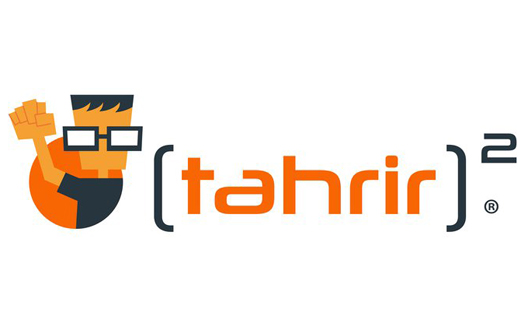A Look at Egyptian Accelerator Tahrir2's Lean Investment Model

 Testing and iterating might be a
good model for the leadership in Egypt lately, not just its
entrepreneurs. As Egyptian protestors continue to launch new waves
of resistance, not content to assume that the transitioning powers
will keep their interests at heart, the right to review and revise
is a central part of the crowd’s
assertion of dignity.
Testing and iterating might be a
good model for the leadership in Egypt lately, not just its
entrepreneurs. As Egyptian protestors continue to launch new waves
of resistance, not content to assume that the transitioning powers
will keep their interests at heart, the right to review and revise
is a central part of the crowd’s
assertion of dignity.
At Tahrir2 (“Tahrir squared”), a tech-focused
accelerator based in Alexandria, testing often and fostering
development in stages is a central part of its plan to help
Egyptian startups become autonomous.
Launched directly after the revolution, in April, 2011, the
accelerator is led by Samer El Sahn, the former CEO of eSpace, one
of Egypt’s most well-known software development houses, and Mohamad
Gawadat, the Managing Director of Eastern and Emerging Europe,
Africa, and the Middle East at Google.
To ensure that Egypt’s startups can survive in a market suffering
from political instability and a slow post-revolution recovery, El
Sahn and Gawadat are taking a unique approach. By investing a total
of around $90,000-140,000, doled out at 4 stages, over a year, the
startup hopes to maximize its graduates’ chance of being
successful.
“The costs of creating a company here are not large; you can launch
an entire company with 60,000 EGP (around $9,000),” says El Sahn.
To compare, this is the low end of the range that Cairo-based
accelerator Flat6Labs invests in its startups, giving 60,000 –
75,000 EGP ($9,000 - $12,000) for a 10-15% equity stake.
Yet, says El Sahn, in an immature tech market with inexperienced
entrepreneurs, Tahrir2 has taken a more cautious
approach, investing only in those startups that pass its tests.
The model
At the outset, the accelerator Tahrir2 gives
applicants $600. If teams can polish their financial plans and
demonstrate market research, they pass into stage two, where they
receive $10,000 in seed investment.
This initial $600 is designed to separate the wheat from the chaff.
“It’s equivalent to the cost of a due diligence team,” says El
Sahn.
In the second phase, teams are then encouraged to build a
prototype. If they pass the third test, they then receive $20,000
to continue developing and demonstrate market appetite for their
product.
In the final round, which might be equivalent to a post-graduate
round for most other accelerators, Tahrir2 awards
team $60,000 - $100,000 on a case-by-case basis. “This gives them
enough for the post-seed phase,” says El Sahn.
Compared to most accelerators in the region, it’s a lot of early
capital. But if this so-called “lean program” results in a higher
success rate for graduates, it could be worth the investment.
With only three startups currently graduated, and one still
incubating, it’s too early to tell, but El Sahn says that at least
one, e-Bay style site
OpenDayz, broke even in December.
OpenDayz founder Noha El Shazly says the format worked well. “It
was a long journey, but having regular tests helped me to see my
own vision more and move faster on building the product,” she says.
This next year, her team hopes to “go regional and dominate the
Egyptian market.”
The startups
Here’s a look at the three graduates:
- OpenDayz is an e-commerce site designed to help smaller
businesses come online and market products via social networks.
Thus far, it seems to have tapped a post-revolution market need; El
Sahn ways 60 stores are joining per month, and revenues have
increased 30% month to month since June.
-
FunWave is a social game development studio that built Ultras,
a football team management simulation game that puts users at the
helm of their favorite teams. The game had over 400,000 active
monthly users as of last September, and Tahrir2 has
valued it at $1 million. The team is now signing contracts to
secure digital agencies as sponsor, says El Sahn.
- ShootGet is an augmented reality platform that allows online companies to present their products in offline print and publishing outlets. It’s currently in talks for a deal with one of the region’s biggest publishers, says El Sahn.
Ongoing startups:
- Spyros is a game development studio that builds casual games that is partnering with Chillingo to release their new game, “Authorus,” which should be out in another two months, says Sahn.
- Zabatak, a non-profit crowdsourced initative that Tahrir2 contributed to, is designed to track and fight corruption and has geolocated over 2,200 reports of bribery or corruption.
Two others failed to pass all of the stages:
- Watauz.it was an extension that speeds up the process of
searching while browsing, appears to have closed.
- Blue Flare’s mobile application Flare Fleet enabled you to detect your car's location remotely and track driving statistics.
Judging by the near 50% failure rate, it's clear that the lean model has weeded out companies that might not have survived outside the accelerator, before they fully launched, perhaps mitigating further investment down the drain. Depending upon how the four growing startups fare, they could prove or disprove the validity of the model for other accelerators in transitioning economies, who will undoubtedly be watching.


